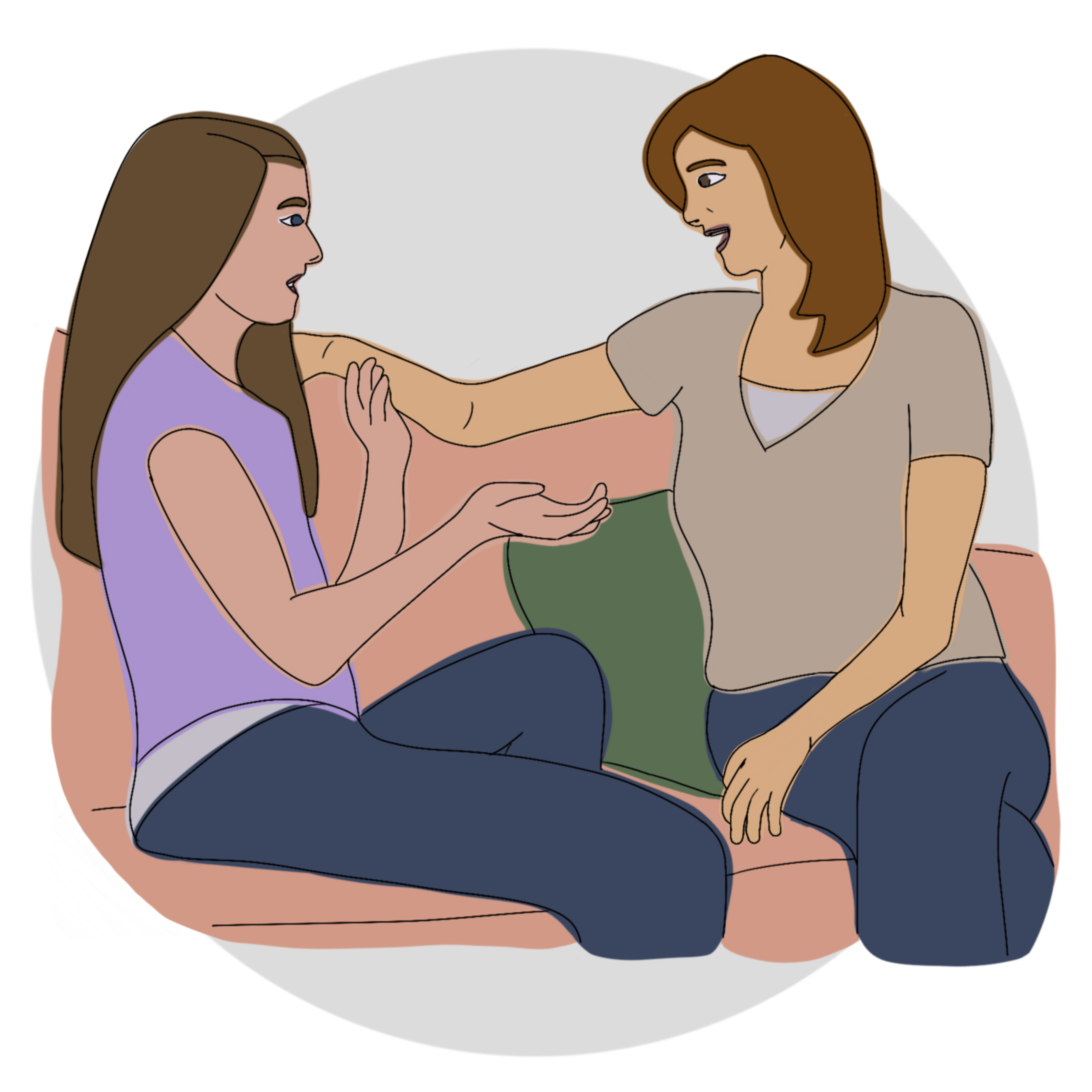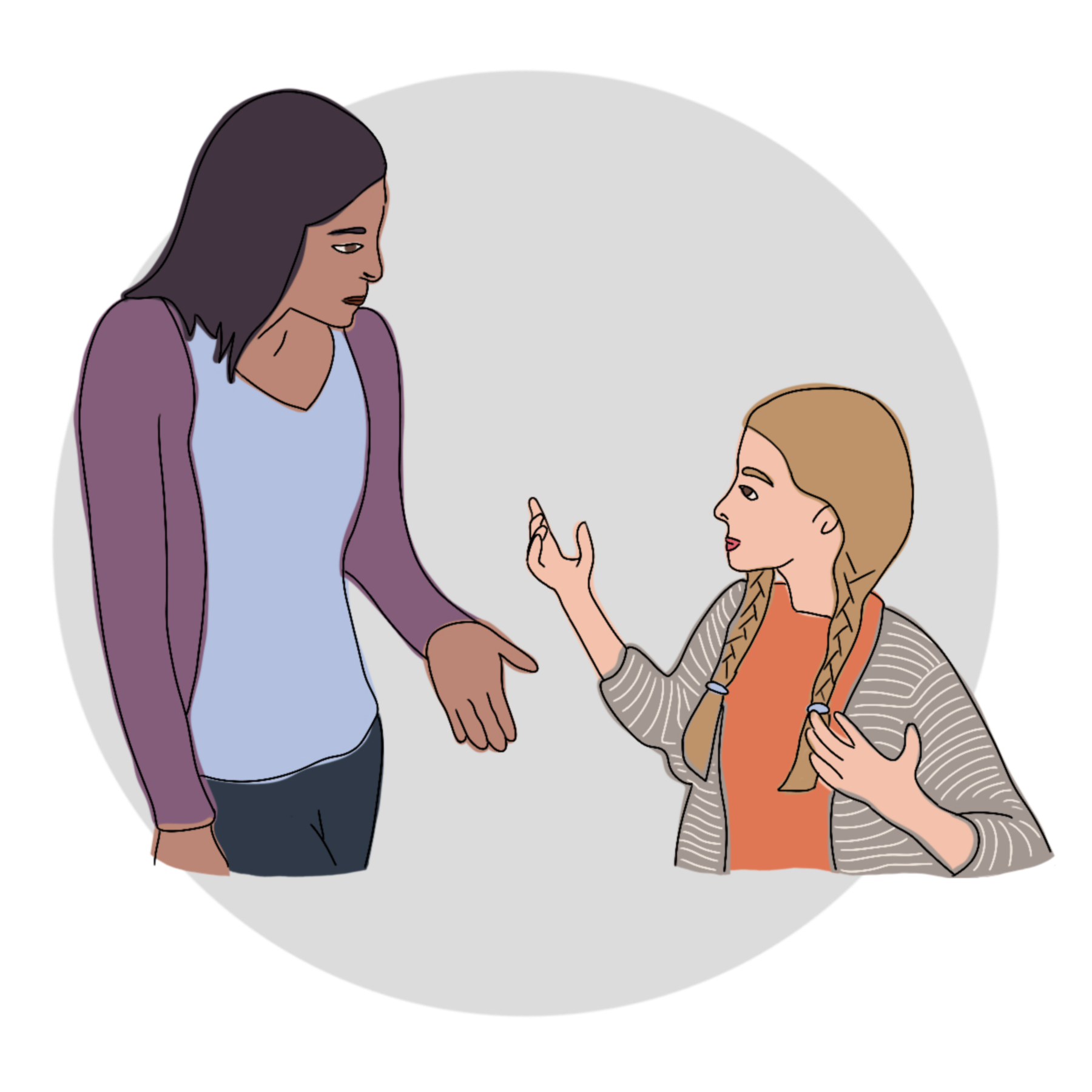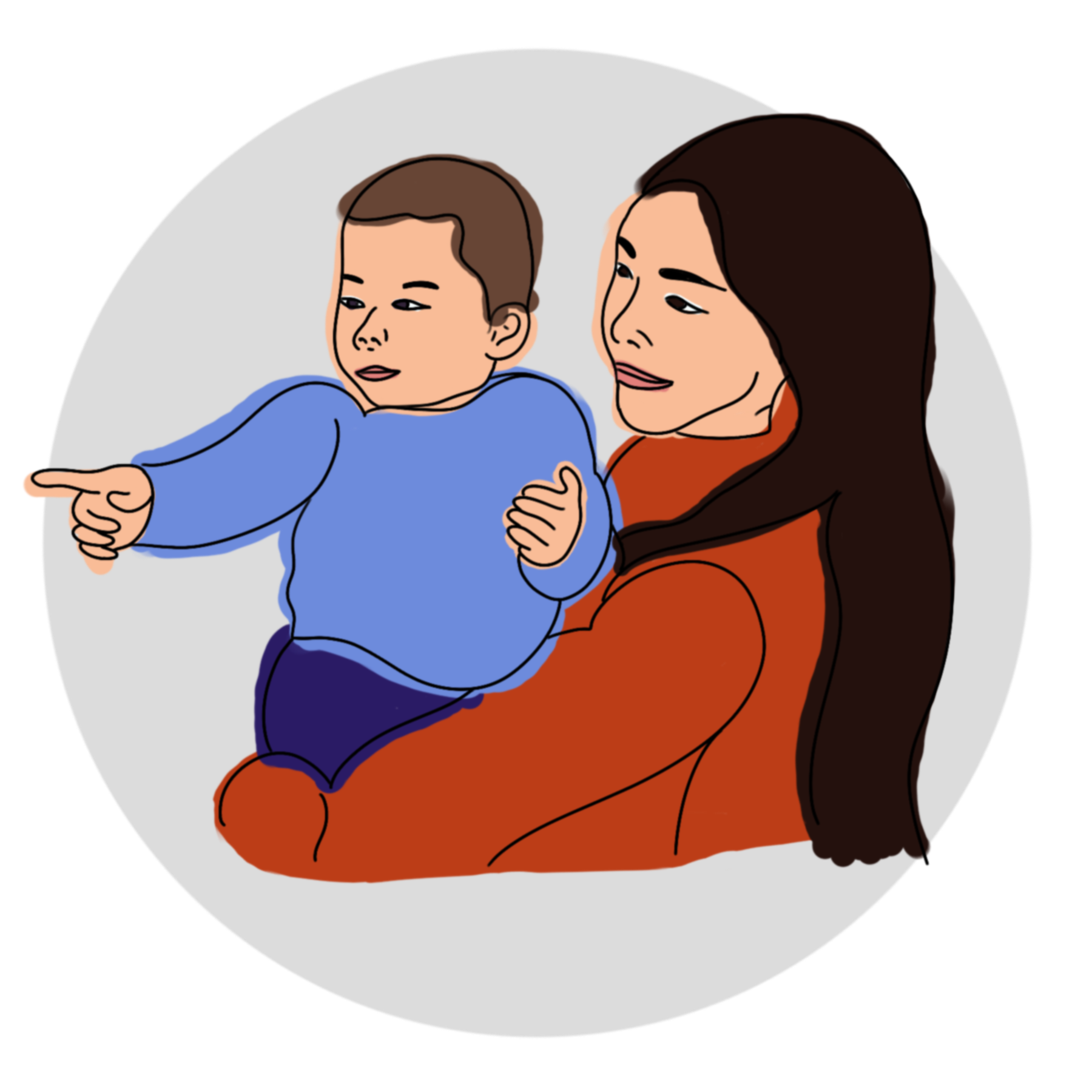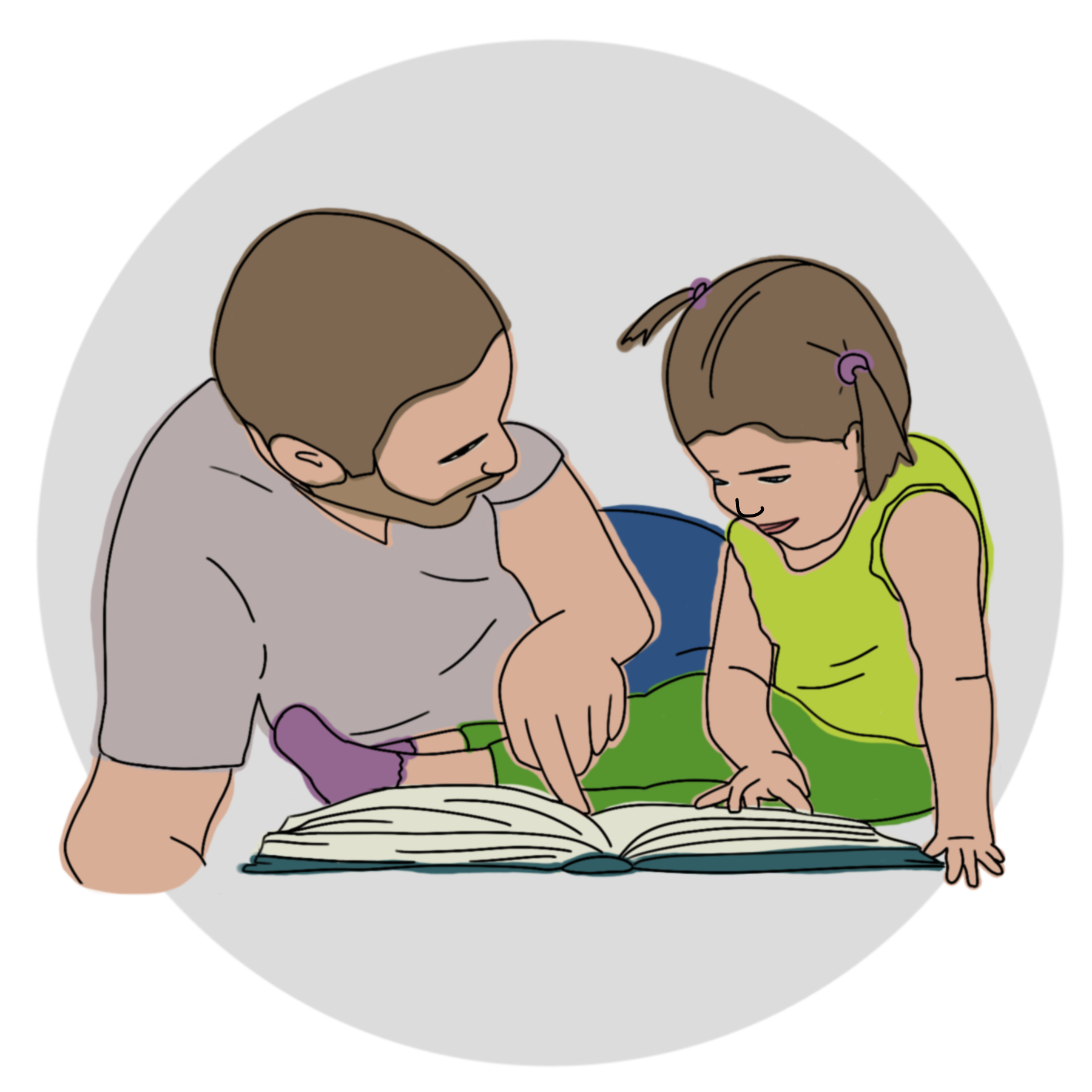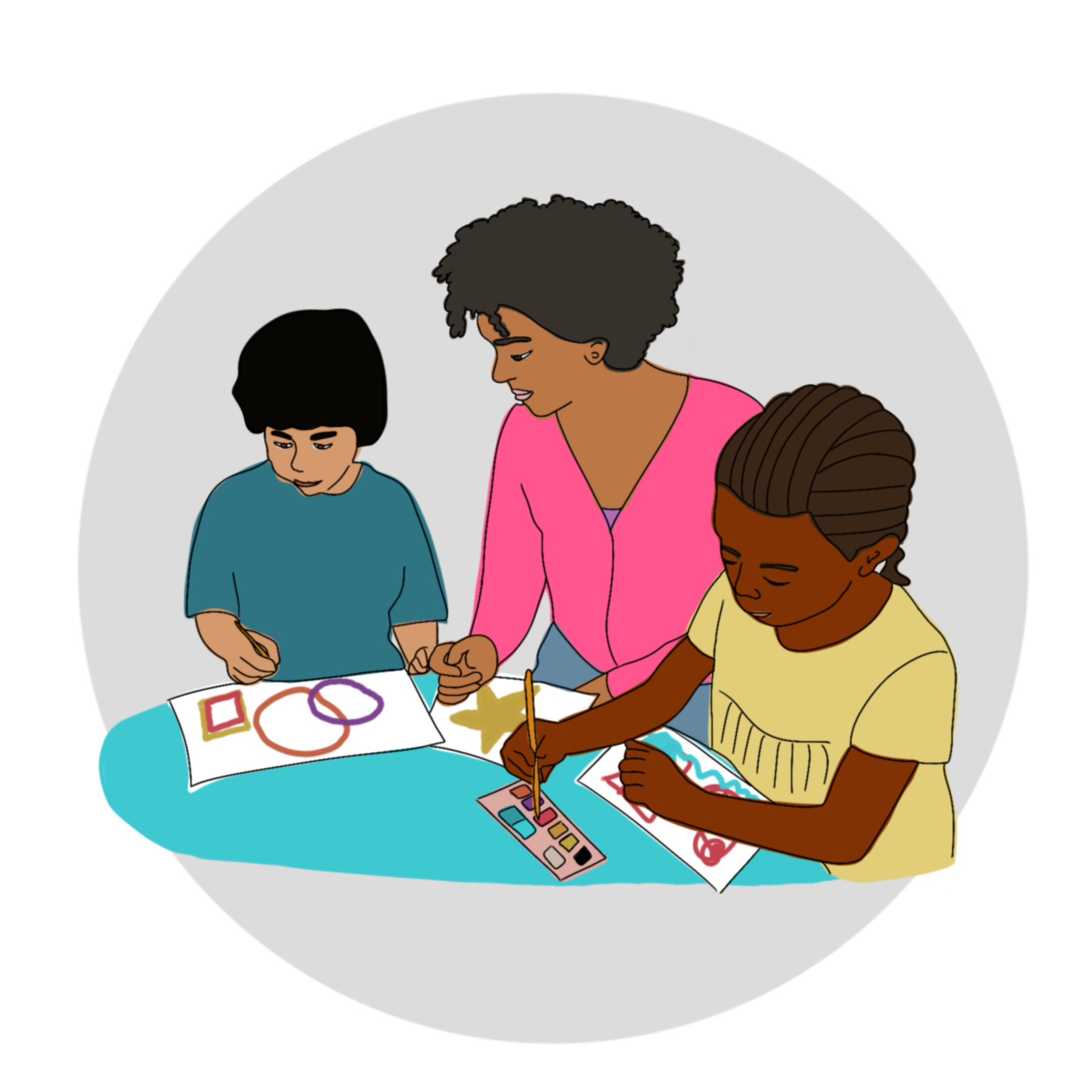Research
Research Projects
How do children go from being people who talk at you to people who talk with you?
Adults use an impressive toolkit of communicative resources to coordinate in everyday conversational. By the time American English-speaking children begin school, they have used conversational interaction to master many of the fundamentals of their language. They are not, however, masters of conversational interaction.
Because language is much more than just speech, my work approaches language development as fundamentally multimodal, examining the changing functions of co-speech gestures as children become collaborative conversationalists. Why and when do children use gestures before words? What kinds of nonverbal messages are children sending when they speak? As adults, do we notice?
As faculty in the Master of Arts Program in the Social Sciences and a graduate of the Department of Comparative Human Development at the University of Chicago, I share a commitment to an interdisciplinary research approach to the study of communicative development. Using a longitudinal corpus of spontaneous parent-child interaction, my work combines elements of conversation analysis with formal speech and gesture coding to investigate how the tools of cooperative conversation change over development.
My research explores the acquisition and integration of linguistic and non-linguistic elements of discourse-pragmatics from infancy to adulthood. I treat language learning as a social phenomenon, necessarily contextualized in dynamic cultural and interpersonal aims and expectations. I work to understand how interlocutors of all ages leverage their speech, voice, and body to take stance, organize dialogue, and co-create conversation.
Learn more about my ongoing work and project contributions with the links below.

